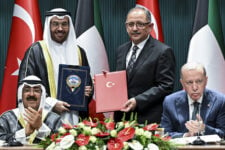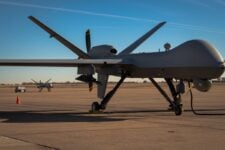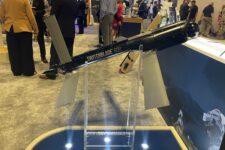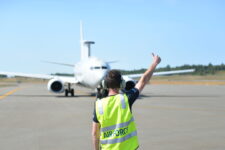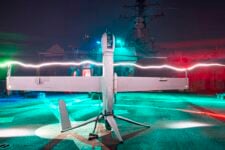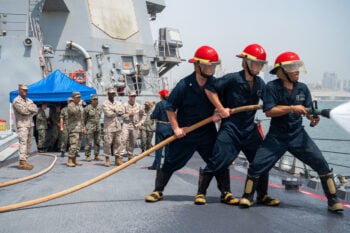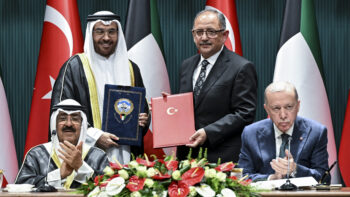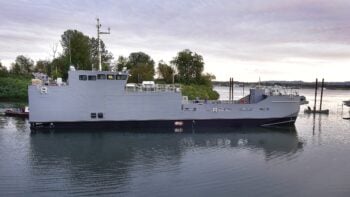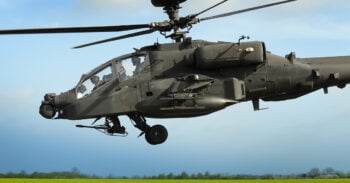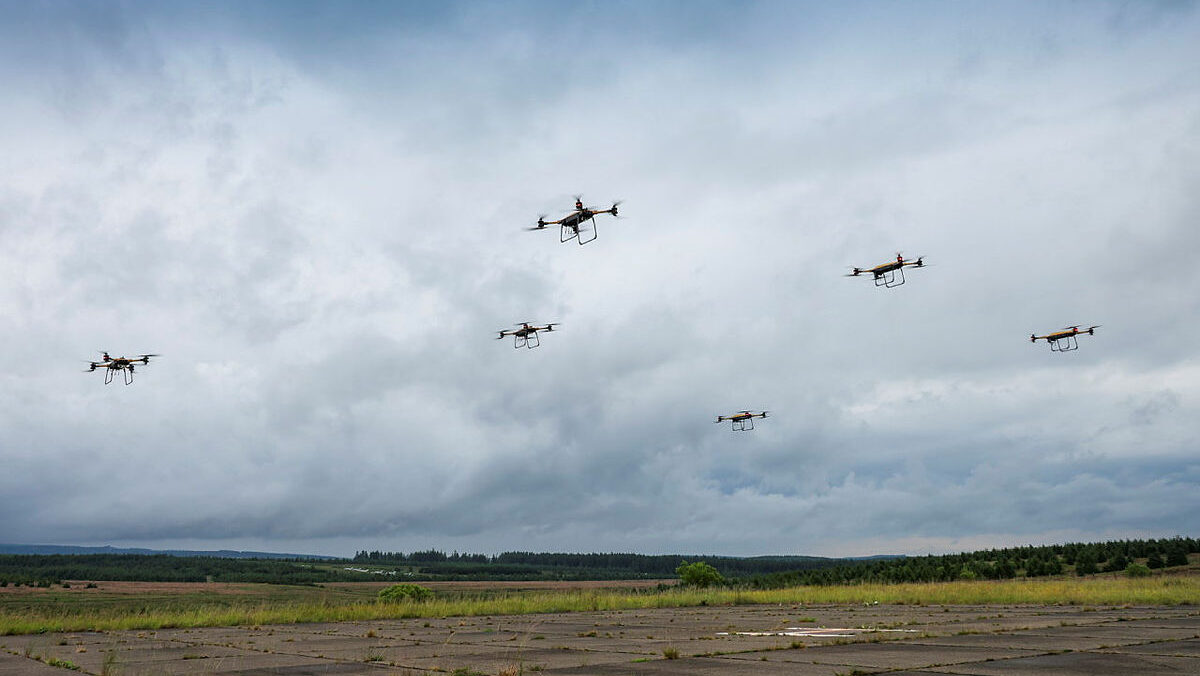
Royal Marines strike teams from Alpha Company, 40 Commando, experiment with a swarm of Malloy TRV150 drones (UK MoD)
BELFAST — A key British lawmaker has revealed that a Royal Air Force (RAF) squadron stood up in 2020 to specifically test and experiment with uncrewed aircraft has yet to carry out a single drone test.
The admission raises serious questions about the UK’s goal of “rapidly” bringing new drones into service, as set out in a newly released national military drone strategy, and also undermines Ministry of Defence ambitions to retain technological advantages over adversaries said to be developing uncrewed aerial system technologies “at pace.”
“Since the formation of 216 Squadron in 2020 there have been no completed tests or trials conducted either in-house or with industry,” said James Cartlidge, UK minister for defence procurement, in a Monday parliamentary statement.
Cartlidge also added that a trial scheduled for June 2023 involving the Callen-Lenz-made Koios medium-sized intelligence surveillance and reconnaissance drone was cancelled “due to competing resources.”
Despite not undertaking any tests independently, Cartlidge said 216 Squadron had “participated in several technical demonstrations as military advisers and subject matter experts” in collaboration with the UK’s military innovation unit, the Defence Science and Technology Laboratory.
216 Squadron, based out of RAF Waddington in Lincolnshire, England, was previously a transport squadron but reformed to stand up as a test squadron in April 2020 to focus on drone swarm capabilities.
In 2022, the MoD refused to comment on the squadron’s test activities or inventory on grounds of commercial confidentiality, which was overturned on appeal, according to UK website Drone Wars, a non-governmental organization specializing in the research of uncrewed aerial systems.
At the time, the website said 216 Squadron was made up of four staff members. The UK’s Times newspaper claimed this week the squadron is comprised of three full-time personnel and four part-time reserves.
Cartlidge’s admission of 216 Squadron’s inactivity and failure to record a single drone test over the last four years appear out of step with remarks made by then Chief of the Air Staff, Mike Wigston in a June 2021 speech at the Global Air Chiefs Conference.
“Our drone test squadron, 216 Squadron, has proved beyond doubt the disruptive and innovative utility of swarming drones under our ALVINA programme,” he said.
“Such is its impact” added Wigston, that “more than one [drone test] squadron” will be operational in the future, “and we will spirally develop it year by year, moving swiftly where the technology allows and the threat invites.”
Wigston had also claimed during a separate speech at DSEI in 2021 that the UK had “flown swarms of over 20 drones to eye-catching effect” and said future operational swarms “are likely to be a mix of drones of different sizes, range and endurance, each carrying a variety of bespoke payloads including electronic attack and more.”
The UK MoD declined to comment today on the claim by Wigston that additional drone test squadrons will be stood up in the future, but said in a statement to Breaking Defense that the RAF “has been involved in uncrewed air systems test and evaluation (T&E) however, as the equipment was the property of the manufacturers the trials activity was generated and completed by industry.”
The thinking behind testing and eventually operating swarming drones is that they increase combat mass at a reduced cost compared to crewed fighter jets and can be deployed en masse as decoys for enemy air defense systems to engage, so that friendly fighter jets can then claim air superiority. Alternatively, swarms could be used to detect adversary electronic signatures and warn off supporting crewed platforms from entering surrounding airspace.
The problems of 216 Squadron add to previous UK military drone setbacks, which include the abrupt cancellation in July 2022 of Project Mosquito, designed to deliver a loyal wingman/future uncrewed combat aircraft demonstrator.
Wigston previously said he was “confident enough to announce that we will see the Mosquito demonstrator flying in UK airspace by the end of 2023,” when talking of the program involving US manufacturers Northrop Grumman and Spirit Aerosystems. A physical demonstrator was never built.
The Royal Air Force is soon set to deliver an Autonomous Collaborative Platforms (ACP) strategy that will address how the service will introduce autonomous air platforms into service over the next decade.
“In the near term, the RAF will focus on the delivery of ultra low-cost air vehicles, that bridge known capability gaps, whilst increasing force mass,” according to a UK parliament report on aviation procurement. “In parallel, operational analysis for larger more survivable systems will inform the development of more modular and adaptable ACPs that will become a mainstay augmenting the future combat air fleet.”
Kuwait’s new ‘executive protocol’ with Turkey could mean new weapons, training
“As the Kuwaitis work to modernize their military, Ankara eyes the lion’s share of Kuwait’s defense procurements,” analyst Ali Bakir told Breaking Defense. “Turkey is willing to offer a range of its modern, cost-effective and highly capable weapons…”
